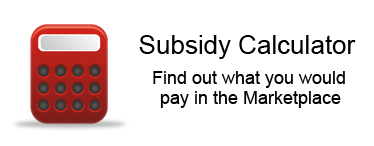 Although the employer mandate penalties of the Affordable Care Act (ACA) have been delayed until 2015, many other pieces of the ACA take effect this year, in 2014. For example, the prohibition on pre-existing condition exclusions, the out-of-pocket limits, and the prohibition on annual or lifetime limits for essential health benefits are all effective for group health plans beginning on or after January 1, 2014. What happens if your employer-sponsored group health plan renews on or after January 1, 2014, but the plan that is being renewed is not compliant with healthcare reform? This situation can arise if the employer is purchasing a plan from a MEWA* (multiple employer welfare arrangement) and the MEWA is a non-calendar year plan that renews after the employer renews its group health plan. The employer renewing earlier in 2014 than the MEWA will be purchasing a health plan from the MEWA’s 2013-2014 plans, which are likely not compliant with certain provisions of the ACA. The employer would then have that non-compliant plan in place for its entire 2014-2015 plan year, absent a mid-year change when the MEWA renews and updates the plans to be compliant with healthcare reform.
Although the employer mandate penalties of the Affordable Care Act (ACA) have been delayed until 2015, many other pieces of the ACA take effect this year, in 2014. For example, the prohibition on pre-existing condition exclusions, the out-of-pocket limits, and the prohibition on annual or lifetime limits for essential health benefits are all effective for group health plans beginning on or after January 1, 2014. What happens if your employer-sponsored group health plan renews on or after January 1, 2014, but the plan that is being renewed is not compliant with healthcare reform? This situation can arise if the employer is purchasing a plan from a MEWA* (multiple employer welfare arrangement) and the MEWA is a non-calendar year plan that renews after the employer renews its group health plan. The employer renewing earlier in 2014 than the MEWA will be purchasing a health plan from the MEWA’s 2013-2014 plans, which are likely not compliant with certain provisions of the ACA. The employer would then have that non-compliant plan in place for its entire 2014-2015 plan year, absent a mid-year change when the MEWA renews and updates the plans to be compliant with healthcare reform.
There are a number of risks associated with this situation. The ACA (or PPACA) made a number of amendments to the Public Health Services Act (PHSA) that were incorporated by reference into ERISA and the Code, making the mandates applicable to group health plans subject to the Code, ERISA, and the PHSA. Although the substantive requirements in each are virtually identical, the consequences of noncompliance differ depending on the enforcement mechanism. Private-sector group health plans (including MEWAs) are subject to enforcement from both the Code and ERISA.
Code §4980D imposes an excise tax for a group health plan’s failure to comply with certain requirements, including provisions of the Code that incorporate the PHSA mandates of healthcare reform. Subject to certain exceptions, failure to comply with a PHSA mandate will potentially trigger an excise tax of $100 per day under the Code “with respect to each individual to whom such failure relates.” That’s $100 per day per enrollee in the plan. The minimum excise tax for a compliance failure is $2,500. This minimum increases to $15,000 if violations are “more than de minimis.” The maximum excise tax for “unintentional failures” is the lesser of 10% of the amount paid during the preceding tax year by the employer for group health plans, or $500,000.
For single employer plans, this excise tax is imposed on the employer as the plan sponsor. For multi-employer plans, or MEWAs, the excise tax is imposed on “the plan.” Just where does the liability fall? Entities liable for the Code §4980D excise tax must self-report on Form 8928. Multi-employer plans must file the return by the last day of the seventh month following the end of the plan’s plan year (just like Form M-1 and Form 5500 required by ERISA of plans with 100 or more members). Employers must file the form on or before the due date of the employer’s income tax return. But how does an employer know if the Form 8928 should be completed at the MEWA level or the employer-member level? If the ERISA Form 5500 regulations are any guide, the answer is not always at the MEWA level.
Assuming the MEWA is responsible for the Code §4980D self-reporting and the associated tax penalties for compliance failures, there is still risk of liability for the employer. The employer-member of the MEWA is at risk for noncompliance with the PHSA mandates incorporated under ERISA. Risk under ERISA comes from two fronts – enforcement action by the Department of Labor (DOL) and civil lawsuit by a participant or beneficiary. (See ERISA §502(a) & §715.) The DOL has broad discretion to impose civil penalties following an audit, and the civil lawsuits brought by participants can seek claims for payment of benefits, damages for unpaid benefits, interest, and attorney’s fees.
The DOL has specifically identified heightened scrutiny of MEWAs as one of its enforcement priorities, most recently in the Health Benefits Security Project (HBSP) established in 2012. The HBSP involves a broad range of health care investigations, including examinations for compliance with the ACA and civil and criminal investigations of MEWAs. In March 2013, the DOL finalized two sets of previously proposed regulations relating to MEWAs. One regulates MEWA reporting requirements and the other provides MEWA enforcement rules. These final regulations implementing MEWA-related health care reform provisions are intended to assist the DOL’s efforts to combat fraud and other abuses.
In addition to issues with legal and regulatory compliance, the mandates that the MEWA plans will not be in compliance with are some of the most publicized benefits for individuals as a result of healthcare reform. Not only does this pose an employee relations issue, but it also could increase the risk of a participant lawsuit by individuals who do not gain coverage for pre-existing conditions during 2014, spend significantly more than the out of pocket maximum in 2014, or hit an annual limit on any services qualifying as essential health benefits, just to name a few examples.
It is also worth noting that in all of the ACA implementing regulations we have received to date, there is no hint of a special rule for employers who are members of a MEWA that have an off-cycle plan year for their ERISA group health plan. Employers are strongly encouraged to consult legal counsel to assist in quantifying the risk of pursuing a plan with a MEWA where the employer has actual knowledge that the plan(s) offered to employees will not be in compliance with the PHSA mandates at any point in 2014 and to seek a formal legal opinion before proceeding with implementing such a plan. Such employers should also carefully review insurance policies, as they may not cover penalties or lawsuits arising out of ACA noncompliance. Finally, an employer should consider seeking indemnification from the MEWA for any penalties or costs incurred by the employer as a result of noncompliance with the ACA. The safest route, however, may simply be to purchase a compliant plan elsewhere for the 2014 plan year and reevaluate the MEWA options for the plan year beginning in 2015, after the MEWA has fully implemented the healthcare reform mandates.
Click here for the DOL’s MEWA guide to Federal and State regulation.
*ERISA defines a MEWA as an employee welfare benefit plan that provides medical or other welfare benefits to employees of two or more employers. MEWAs exist in the form of self-funded or insured trade association plans offered to members of the association, and self-funded or insured commercial plans offered by a multiple employer trust to its members.


